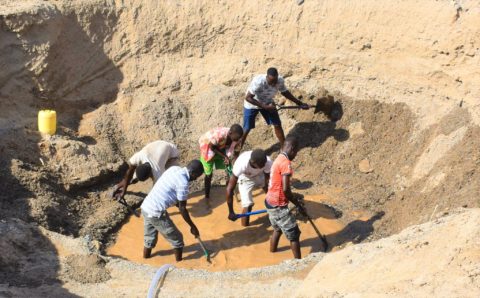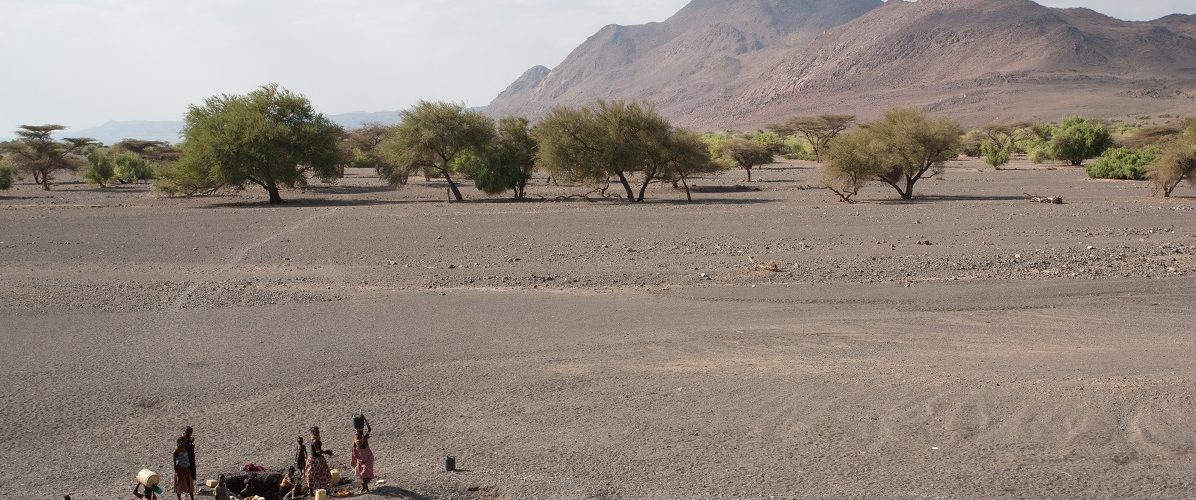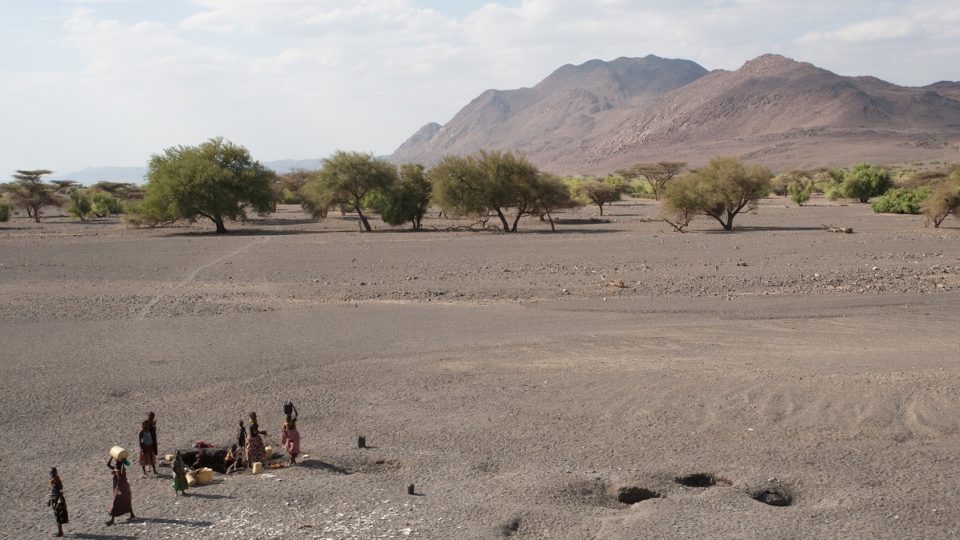Water plays an important role for peace and stability of the African continent. In addition to the conservation of wetlands, interventions around the preservation of water can support peacebuilding. Based on examples drawn from the engagement of the Water Peace and Security partnership in Mali and Kenya, these practical experiences show how water is key to stability and security, how water-related conflicts are regulated, and what could be a way forward to make these structures more effective.
Water is at the heart of ecosystems on which human livelihood depends for agriculture, livestock and fisheries. As such, water is key to stability and development. However, climate change, population growth, weak governance and mismanagement are posing numerous challenges to this resource.

Search for water for domestic use from a seasonal river in Turkana
This is particularly observed in the Kenyan and Malian wetland ecosystems – Lake Turkana and the Inner Niger Delta. Communities of Turkana County are affected by water scarcity and experience decreased rainfall, increased dry spells – negatively affecting their livestock. In Mali, the flood plains of the Inner Niger Delta are influenced by changing rainfall patterns and the operation of dams and irrigation systems which impacts water availability and the communities dependent on it. This is threatening social stability, hence affecting the security in the region.
Tensions and conflicts around water and wetlands
Lake Turkana and the Inner Niger Delta are distant from national politics. Local communities feel marginalized from decision-making processes. In Mali, limited state presence and defiance towards authorities impede its capacity to enforce rules – a tendency that is aggravated by ongoing conflict since 2013. The Inner Niger Delta serves as a refuge for armed groups who use deeply seated grievances over resources allocation to extend their influence. In North-eastern Kenya, weak environmental governance structures, scarce resources and changing climatic patterns have put additional pressures on already vulnerable communities and exacerbate endemic water-related disputes within and between communities. Furthermore, the discovery of oil, infrastructural developments, increased economic activities and urbanisation have exacerbated often already existing grievances and conflicts over land rights.
Legal frameworks and local initiatives for integrated resource management
To face these pressures on Lake Turkana and the Inner Niger Delta, integrated resource management and effective conflict resolution mechanisms are critical. Both Kenya and Mali have some structures in place. The Constitution of Kenya encourages the application of Alternative Dispute Resolution mechanisms in resolving environmental conflicts and disputes such as water-related conflicts. In Mali, the law foresees a Pastoralist Charter to regulate herders’ activity and the establishment of local resources management committees.
Although clearly articulated on paper, these policies and laws remain under-implemented, insufficiently staffed and credited. Another weakness is that they tend to be siloed, driven by either the hydrological or peace and security sector. Nevertheless, some promising initiatives and structures are emerging, albeit still rather localised and dependent on donor funding. In Mali, local water committees and land management commissions – who include interest groups such as cooperatives and associations – have shown they could be efficient mechanisms. In Kenya, groups such as the Water Resources Users Associations (WRUAs) play a critical role in resolving water-related conflicts.
A necessary leap of cross-sectoral collaboration for proper implementation
Through our engagement with the Water, Peace and Security partnership, we advocate to scale those success stories – and accompany local actors from community to national level to transcend their sectoral approaches to cooperate and address those complex challenges. It starts with establishing a shared understanding of power dynamics, resources availability and allocation between different stakeholders and sectors. The partnership supports this through participatory conflict and water systems analysis, bringing together technical experts and community representatives.
Through this process and the increased understanding and knowledge, it encourages institutional actors – working in technical agencies or ministries, local or regional authorities – to seek synergies beyond the scope of their mandate and take informed action, evaluating the impact of specific policy decisions on water management.
Pursuing such a process as described creates local ownership and encourages champions from diverse backgrounds within the formal structures and the target communities to stand up and address water-related conflict risks in a holistic way.
Read more about the Water, Peace and Security (WPS) partnership here.
By Camille Marquette (International Alert) and Titus Wamae
Lead image by Michel Laplace Toulouse: Turkana women at Moite dry river bed collecting drinking water only 200 metres from Lake Turkana in Northern Kenya


Leave a comment